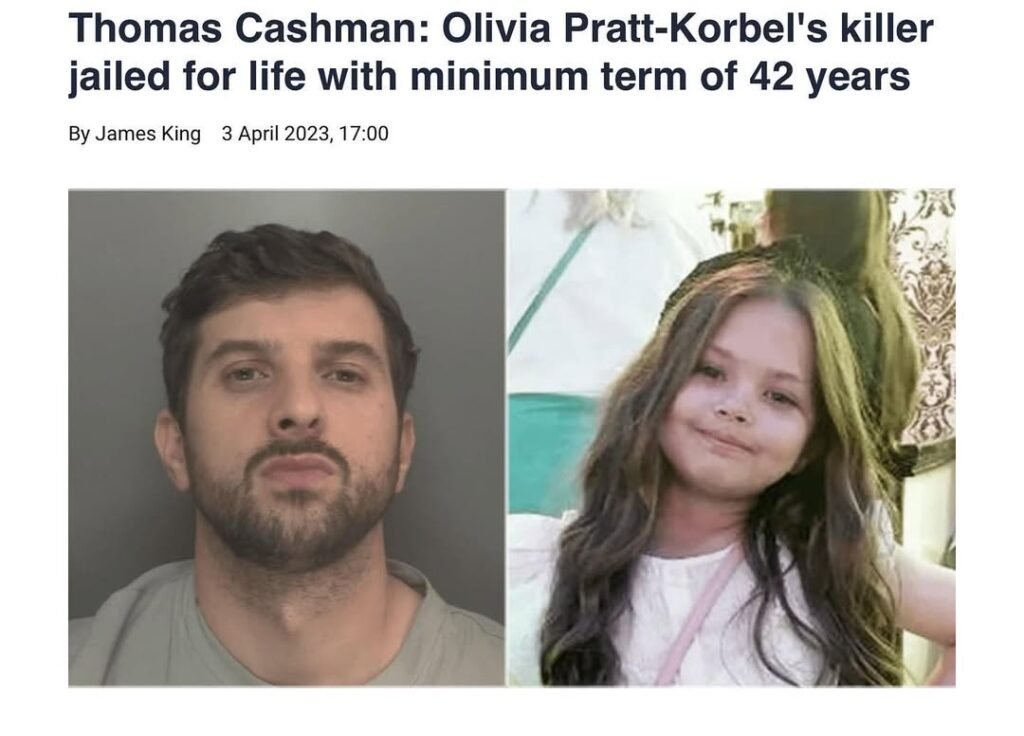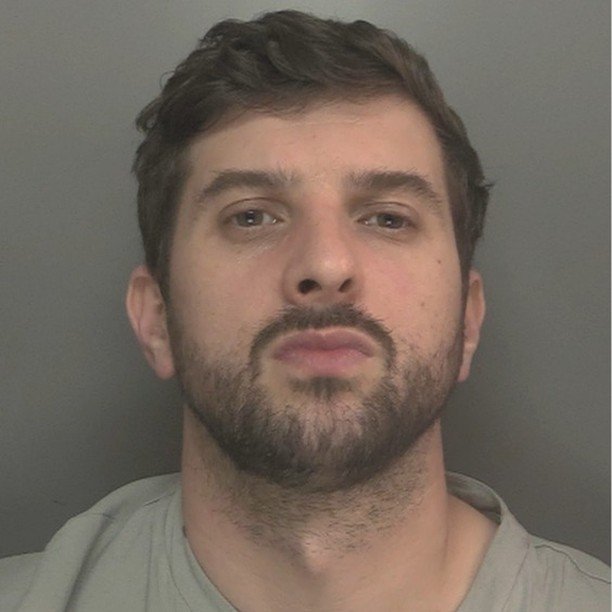The name Thomas Cashman has been a regular feature across UK news headlines since the heart-breaking events of August 2022. His trial, conviction, and ongoing attempts to either appeal or lessen his sentence have placed him at the centre of widespread public outrage and debate. Here is an in-depth look at Cashman and the far-reaching impact of his actions.
The Crime That Shocked the Nation
On 22 August 2022, Liverpool was struck by a tragedy that would reverberate across the United Kingdom. Nine-year-old Olivia Pratt-Korbel was fatally shot in her own home in Dovecot, Liverpool. Thomas Cashman, whose intended target was a convicted drug dealer named Joseph Nee, fired shots into the family home. Olivia was killed while her mother, Cheryl Korbel, was wounded as she tried desperately to keep her daughter safe.
Cashman, who was 34 at the time, was a known drug dealer in the area. On the night of the shooting, he lay in wait for Joseph Nee, intending to kill him. He was armed with two firearms: a Glock semi-automatic pistol and a revolver. As he pursued Nee through the street, the latter tried to escape by entering Olivia’s home. Undeterred by the presence of innocent bystanders, Cashman pursued him to the doorway and opened fire. The bullet passed through Cheryl Korbel’s wrist and lodged in Olivia’s chest, killing her instantly.
The Trial and Conviction
Cashman’s trial began on 7 March 2023, at Manchester Crown Court. He faced multiple counts: the murder of Olivia Pratt-Korbel, the attempted murder of Joseph Nee, the wounding with intent of Cheryl Korbel, and possession of firearms with intent to endanger life.
Despite his denials and attempts to distance himself from the gunman, the evidence against Cashman was overwhelming. CCTV footage, witness testimonies, and forensic analysis linked him directly to the crime. A significant moment in the trial came when a woman, with whom Cashman had a relationship, testified he had confessed to her shortly after the shooting. She recalled hearing him say, “I done Joey,” referencing Joseph Nee. Cashman maintained his innocence, but the weight of the prosecution’s evidence convinced the jury otherwise.
On 30 March 2023, the jury returned a guilty verdict on all counts. The sentencing followed shortly, during which Cashman displayed little remorse, refusing to attend court for the hearing. Judge Mrs Justice Yip sentenced him to life imprisonment with a minimum term of 42 years before he can be considered for parole. Additional sentences were handed down for the wounding of Cheryl Korbel (10 years) and both firearms offences (18 years each, to run concurrently).
Public Response and Aftermath
The tragedy brought together communities, not just in Liverpool but across the country. The murder of a young child in her own home left people stunned and grieving. Community leaders, police officials, and charities like Crimestoppers condemned the senseless act of violence. Crimestoppers, in fact, played a crucial role by offering a record £200,000 reward for information leading to Cashman’s conviction.
Government officials also responded. The Solicitor General described Olivia’s murder as “shocking and sickening,” signalling the sheer depth of public feeling. The case ignited national debate about the growing presence of organised crime, the availability of illegal firearms, and the urgent need for robust responses to gang violence in British cities.
One of the immediate effects of Cashman’s refusal to attend his sentencing was legislative. A campaign catalysed by this and similar cases led to changes in the law, empowering courts to add two years to jail sentences for offenders who do not face their victims in court. This move reflected public sentiment that perpetrators must be held to account, not just through punishment, but by being confronted with the anguish caused to their victims’ families.

Repeated Attempts to Challenge His Sentence
Despite overwhelming evidence and public condemnation, Thomas Cashman has continued to attempt to overturn his sentence. His legal team argued that his 42-year minimum term was excessive, but their appeals have repeatedly been rejected by the courts. In a recent bid, his lawyers claimed perceived irregularities in the original trial – allegations which were dismissed by senior judges. Each attempt has been met with the firm stance that the interests of justice, and the protection of the public, must come first.
The Broader Context: Crime and Community in Liverpool
While Thomas Cashman’s name has become synonymous with this particular case, the fallout has shone a light on wider issues. Liverpool, like many UK cities, continues to grapple with the menace of gang-related violence. The presence of illegal firearms and the cycle of criminal retribution are not new, yet the murder of Olivia prompted renewed calls for fundamental change and a steely resolve to combat organised crime.
Police and city leaders have praised the courage of those who came forward, despite the well-founded fear of retribution. The response to Crimestoppers’ call for information was described as “incredibly encouraging,” with Merseyside Police vowing to use every means available—to not only deliver justice for Olivia but to prevent future tragedies.
Olivia’s Legacy
The loss of Olivia Pratt-Korbel has left her family devastated—a pain clear in the words of her father, John Pratt: “No words can make you understand the pain that I am feeling. My heart has been forever broken by your actions. We will never be a whole family again. You did that to us”. Her mother, Cheryl, continues to campaign for greater community safety.
Thomas Cashman’s conviction and lengthy prison term have brought some sense of justice, but the scars remain. Olivia’s story has forced the UK to examine the urgent need for safer communities, tougher sentencing for violent offenders, and society-wide support for victims of crime.
Conclusion
Thomas Cashman, now serving one of the longest minimum terms handed down in modern British criminal justice, stands as a notorious figure in UK legal history. The ongoing resonance of Olivia’s story serves both as a warning and a rallying call—reminding the nation that behind every headline, behind every statistic, are the lives of real families, forever changed by the actions of one man
Read More: Liverpool Echo: Top Stories, August 2025
